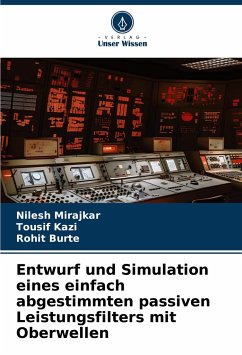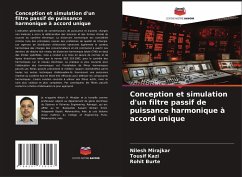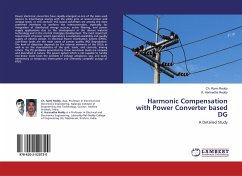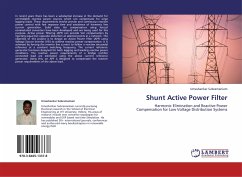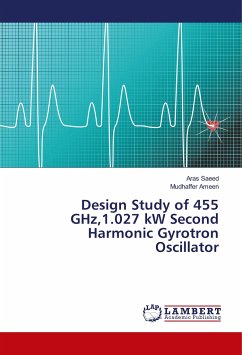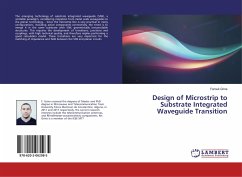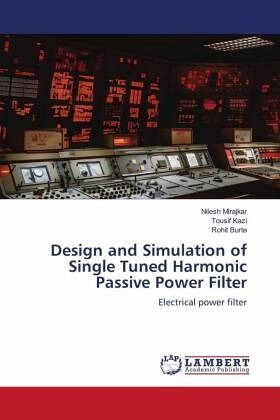
Design and Simulation of Single Tuned Harmonic Passive Power Filter
Electrical power filter
Versandkostenfrei!
Versandfertig in 6-10 Tagen
29,99 €
inkl. MwSt.

PAYBACK Punkte
15 °P sammeln!
The extensive use of power converters and other nonlinear loads has increased the deterioration of the power system voltages and current wave forms. Harmonic distortion is considered to be one of the most significant reasons for power quality problems. Also the electricity supply agencies are observing the harmonic contents of consumer loads and have started warning the consumers to reduce their total harmonics distortion (THD) level below the specified limits. This has led to implementation of standards and guidelines such as IEEE 519-1992, for controlling harmonics on the power system. Nowad...
The extensive use of power converters and other nonlinear loads has increased the deterioration of the power system voltages and current wave forms. Harmonic distortion is considered to be one of the most significant reasons for power quality problems. Also the electricity supply agencies are observing the harmonic contents of consumer loads and have started warning the consumers to reduce their total harmonics distortion (THD) level below the specified limits. This has led to implementation of standards and guidelines such as IEEE 519-1992, for controlling harmonics on the power system. Nowadays, harmonic filters are preferred in many industries for harmonic mitigation. The most common practice for harmonic mitigation is the installation of passive harmonic filters. Passive filters exhibit the best relationship cost-benefit among all other mitigation techniques. They supply reactive power to the system while being highly effective in attenuating harmonic components. The other solution is the application of active filters but they have more cost and complexity. Therefore, passive filters are still the most suitable mitigating scheme.



